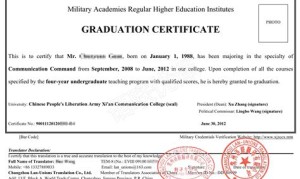Title: Financial Planning for Overseas Education: Navigating Tuition Fees
Introduction
Embarking on an international educational journey can be a transformative experience, but it often comes with significant financial implications. For individuals like Chen Wei's father considering sending their children abroad for studies, careful financial planning is essential. In this guide, we'll explore strategies to navigate the costs associated with overseas education, ensuring a smooth transition and optimal utilization of resources.
Understanding the Costs
Before delving into financial strategies, it's crucial to grasp the components of the expenses involved in overseas education. These typically include:
1.
Tuition Fees:
The primary expense, varying significantly depending on the country, institution, and course of study.2.
Living Expenses:
Accommodation, food, transportation, and other daytoday costs, often substantial in highcost regions.3.
Insurance and Healthcare:
Mandatory health insurance and potential medical expenses.4.
Travel and Visa Costs:
Initial travel, visa application fees, and any related expenses.5.
Incidentals:
Books, supplies, and miscellaneous expenses.Financial Planning Strategies
1.
Start Early:
Begin financial planning as soon as possible to allow for longterm savings and investment growth.
2.
Research Scholarship Opportunities:
Explore scholarships, grants, and financial aid programs offered by universities, governments, and private organizations. These can significantly alleviate tuition burdens.
3.
Consider PartTime Work:
Assess whether the student can legally work parttime during studies to offset living expenses and gain valuable experience.
4.
Evaluate Educational Loans:
Investigate loan options tailored for education, comparing interest rates, repayment terms, and eligibility criteria. Ensure a manageable repayment plan postgraduation.
5.
Budget Wisely:
Develop a comprehensive budget covering all anticipated expenses. Monitor and adjust spending to stay within budgetary constraints.
6.
Explore Alternate Funding Sources:
Investigate options like education savings plans, educational trusts, or contributions from relatives to supplement finances.
Guidance for Chen Wei's Father

Given the specific context of Chen Wei's father's situation, here's tailored guidance:
1.
Research Tuition Costs:
Investigate tuition fees at potential universities and programs of interest. Consider factors like reputation, program quality, and affordability.
2.
Seek Scholarship Opportunities:
Encourage Chen Wei to excel academically and pursue extracurricular activities to enhance scholarship prospects. Research both local and international scholarship opportunities.
3.
Consult Financial Advisors:
Engage with financial advisors or education consultants specializing in overseas education to explore tailored financial planning strategies.
4.
Explore Loan Options:
Assess the feasibility of educational loans considering Chen Wei's academic potential, future earning prospects, and the family's financial situation.
5.
Encourage Early Saving:
Start saving early to build a robust financial foundation. Consider setting up a dedicated education fund or investment portfolio.
6.
Prepare for Contingencies:
Factor in unforeseen circumstances by maintaining an emergency fund to cover unexpected expenses or financial setbacks.
Conclusion
Navigating the financial aspects of overseas education requires careful planning, research, and consideration of various factors. By implementing proactive strategies, families like Chen Wei's can alleviate financial burdens and ensure a smooth transition for their children's educational pursuits. With diligent preparation and the right support, the dream of studying abroad can become a reality without overwhelming financial strain.






 京公网安备11000000000001号
京公网安备11000000000001号 京ICP备11000001号
京ICP备11000001号